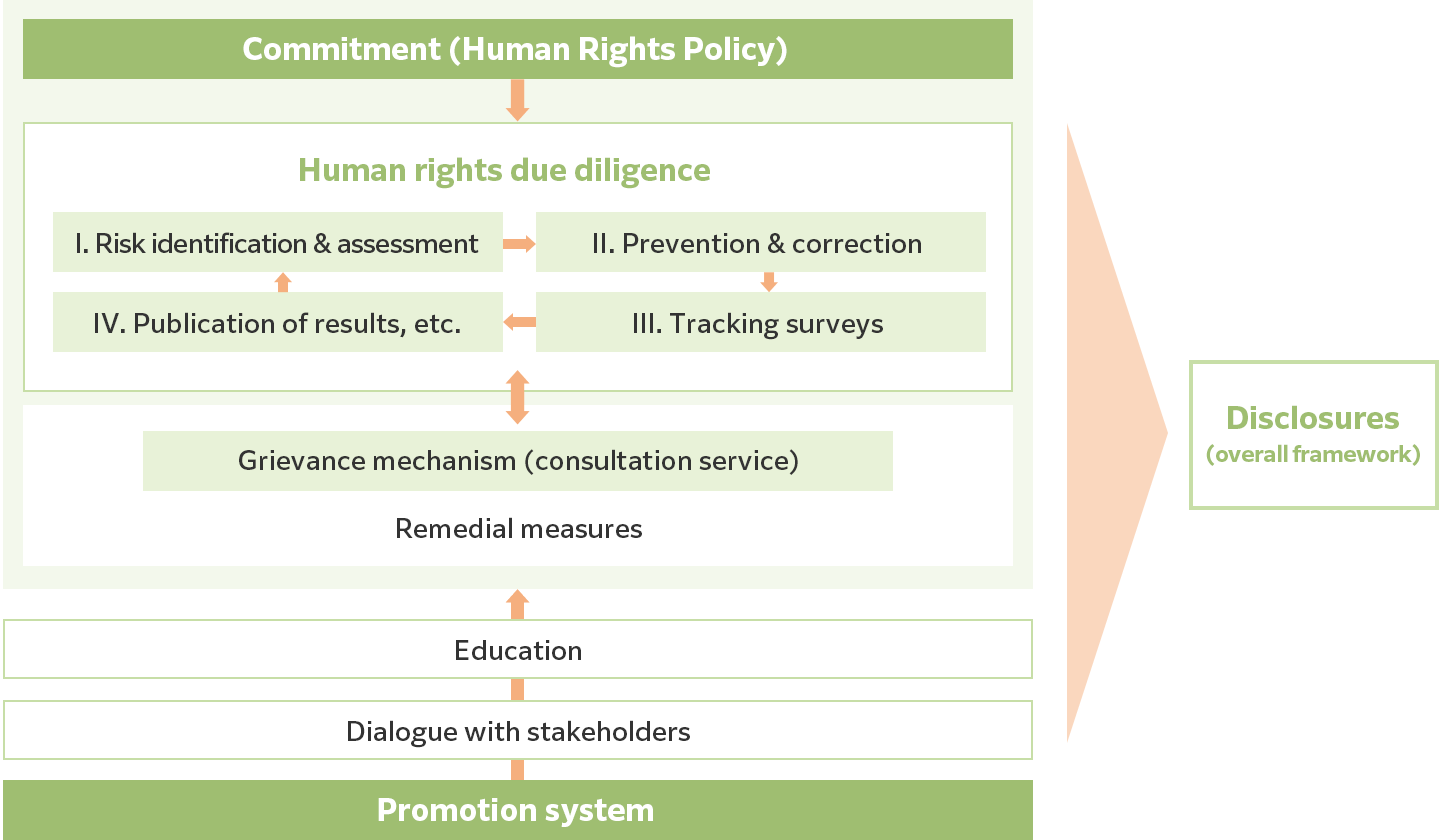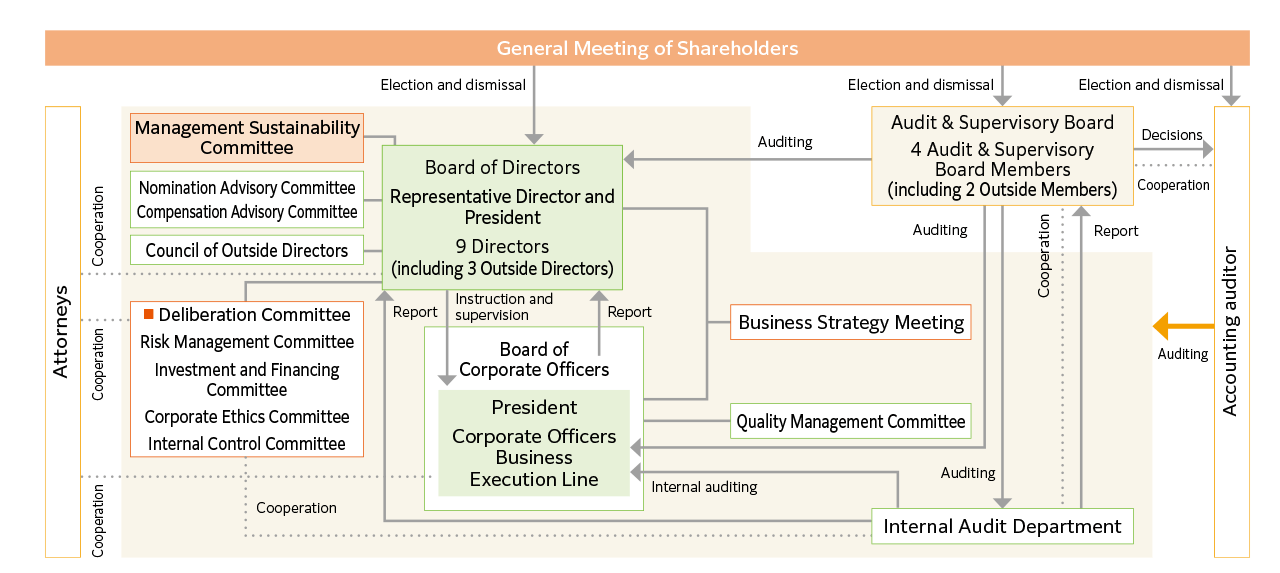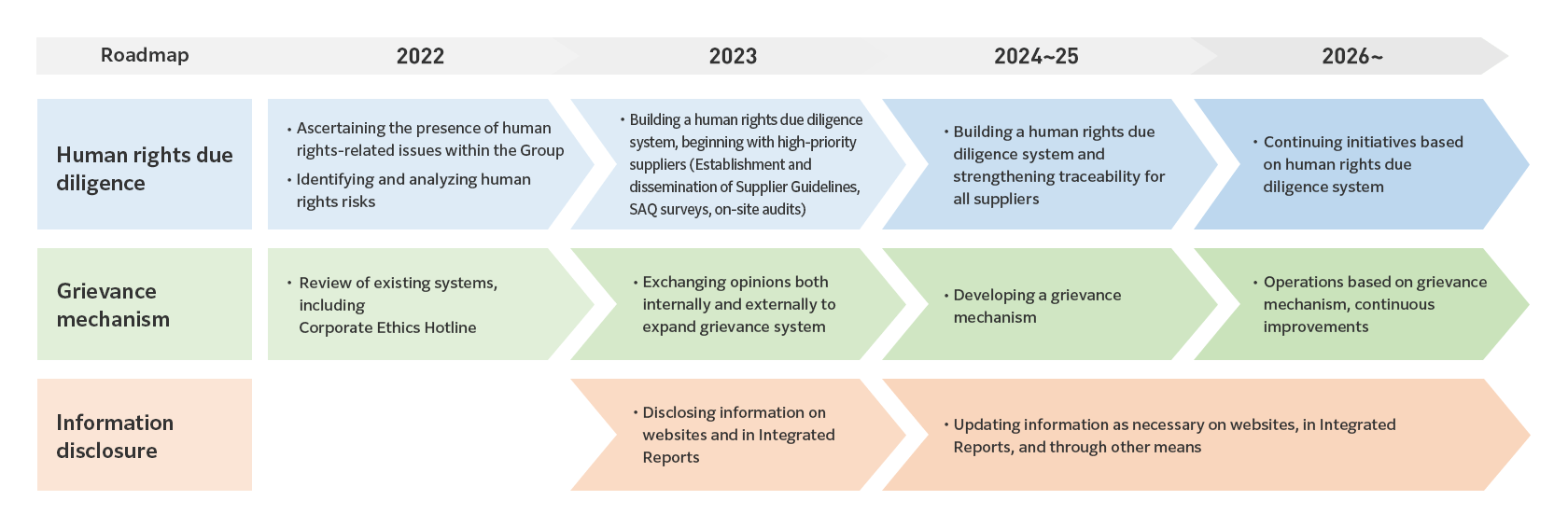Recognizing that our business may directly or indirectly affect human rights in our supply chain, we promote Groupwide efforts to respect human rights in line with the United Nations Guiding Principles on Business and Human Rights.
We respect human rights as defined in the International Bill of Human Rights, the OECD Guidelines for Multinational Enterprises, and the ILO Declaration on Fundamental Principles and Rights at Work.
Our main human rights framework comprises commitments under our human rights policy, human rights due diligence for the Group and our supply chain, and remedial measures under our grievance mechanism. We publish the details of our efforts on our website as appropriate. We also consider it vital to use training to instill the importance of respecting human rights through education for management and employees, and to understand and respond to the ideas and needs of stakeholders through dialogue with them.
On March 25, 2022, we established The Nisshin OilliO Group Human Rights Policy, and are promoting human rights efforts throughout our supply chain.
Basic policies, strategies, and measures regarding human rights issues are approved by the Board of Directors after deliberation by the Management Sustainability Committee, which is chaired by the Representative Director and President and comprises mainly Directors.
(1) Policy
In accordance with the process advocated in the UN Guiding Principles on Business and Human Rights, the Ministry of Economy, Trade and Industry’s Guidelines on Respecting Human Rights in Responsible Supply Chains, and other publications, we identify and assess human rights risks throughout our supply chain and implement human rights due diligence efforts while receiving advice from outside experts.
(2) Status of implementation
In fiscal 2022, after seeking the opinions of outside experts, we classified the Group’s supply chain into agricultural, general manufacturing, and non-manufacturing sectors, and analyzed human rights risks by assessing in terms of “severity” and “likelihood of occurrence” with regard to internationally required human rights items.
We also developed a Self-Assessment Questionnaire (SAQ) with reference to the ILO Declaration, UN Global Compact standards, ETI Base Code, and the like, and administered it to consolidated and non-consolidated companies. Based on the results of this survey and other information, we have established The Nisshin OilliO Group Human Rights Guidelines, which set out standards to be observed by Group companies.
In light of the Group’s human rights risks, in fiscal 2023, we established The Nisshin OilliO Group Supplier Guidelines and took steps to disseminate this information. We then administered the SAQ to roughly 40 high-priority manufacturing contractors in terms of impact on our business, marketability and regional characteristics, the existence or absence of legal regulations, and the like, and received responses from all of them. We also visited two of these companies to explain and discuss The Nisshin OilliO Group Human Rights Policy and engage in other forms of dialogue.
The results of the SAQ and dialogue did not reveal any new severe human rights risks. We will, however, continue our efforts to identify and improve on human rights issues in our supply chain through ongoing surveys and dialogue.
Additionally, Malaysian subsidiary Intercontinental Specialty Fats Sdn. Bhd. (ISF) promotes human rights efforts through engagement with palm plantations and oil mills. With the support of Earthworm (an NPO), ISF worked with Ferrero and KULIM, one of the Group’s main sourcing plantations, to conduct a survey on the plantation laborers’ work environments and the hiring of foreign workers, and identified issues to be addressed for improvements in the future. ISF also holds workshops for small and medium-sized oil mills—direct suppliers—to promote understanding of NDPE and MSPO revision points, and to assist them in acquiring certification.
The Nisshin OilliO Group Supplier Guidelines
■ An example of dialogue with suppliers

In light of the Group’s human rights risks, in fiscal 2024, we will further promote human rights due diligence efforts targeting suppliers of soybean, rapeseed, palm oil, and other high-priority raw materials as well as key logistics-related suppliers of the Group’s products.




